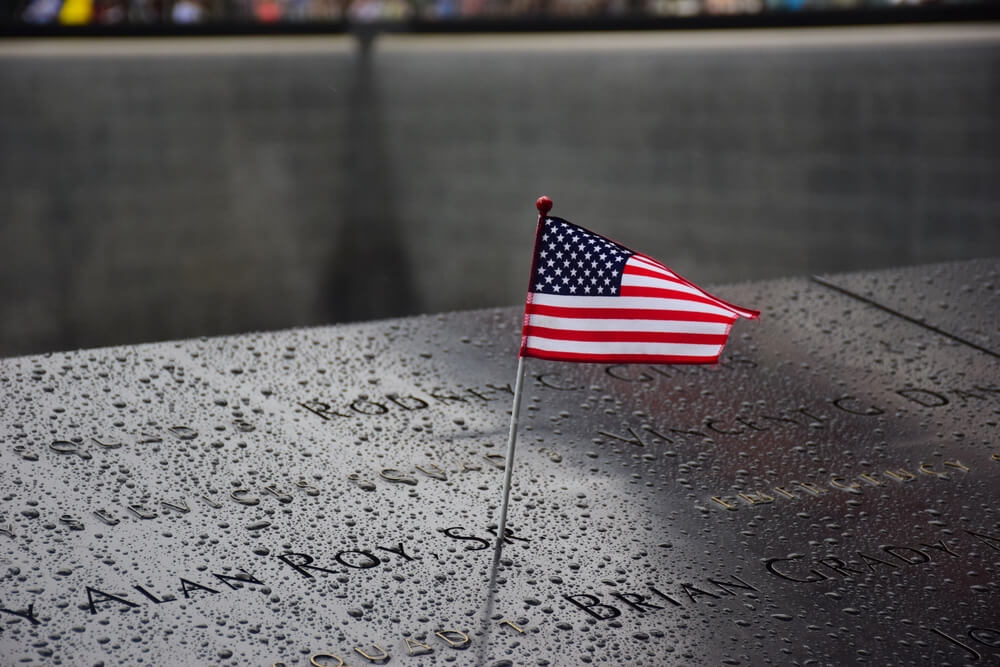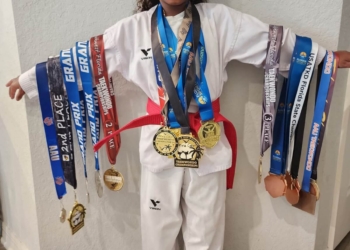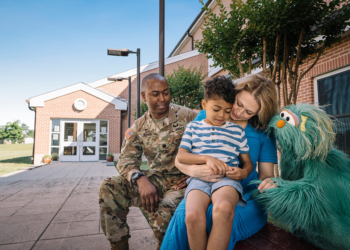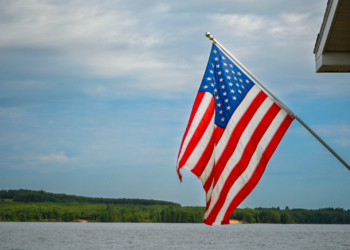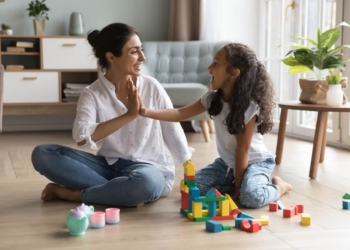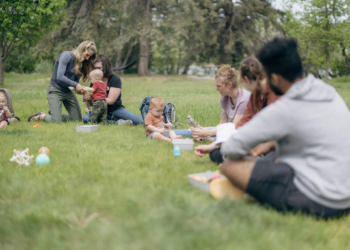Coast Guard spouse Nicole Hosler is a licensed school counselor at an elementary school in Alabama. She has experience in public and private schools, as well as clinical settings, counseling children ages 5 to 18 years old.
She has also worked with families of all branches of the military as a nationally certified counselor, with concentrations in youth mental health and suicide intervention. Military Families Magazine spoke with Hosler ahead of the anniversary of the Sept. 11 attacks on how parents can talk to their military kids about the events of 22 years ago.
How should a parent approach tough conversations with children, regardless of the topic?
While it is important to keep tough discussions age appropriate, it doesn’t mean adults should sugarcoat the facts. Parents should prepare for the conversation beforehand (even if it means rehearsing it). Don’t be afraid to use concrete terms like “death,” “war,” or the like. Clarity is important to a child’s understanding. Children understand more than adults realize. It is often a parent’s own discomfort that keeps them from discussing difficult topics.
At what age should a parent talk about 9/11 with their military kids?
Parents of young children should prepare for a conversation. Think of your child’s surroundings. Do you live on a military base that holds special events every September? Do you pass a “Never Forget” billboard on the way to preschool each morning? It is not uncommon for younger children to ask questions.
Consider your child and make an informed decision on how to address the subject calmly and factually.
Do you think parents should wait until 9/11 is talked about in the classroom or address it at home first?
Most children are not aware of the events of 9/11 until we expose them to television specials or memorial events at school. A conversation at home for school-aged children can prepare them for images they may see.
How does what parents say vary by age (preschool, school age, tweens/teens)? What language should a parent of younger children use when addressing 9/11?
Parents should consider their child’s age and maturity level when choosing their words. Younger children may not understand complex terms like “terrorism.” Parents should still use concrete language that paints an accurate picture. A brief, factual explanation for a young child may look something like this:
“Many years ago, on Sept. 11, a group of bad men got control of two airplanes full of people and crashed them into two buildings in New York City. Those men crashed the planes on purpose to hurt many Americans. Both buildings fell down and many people died. Two other planes crashed in Washington, D.C., and Pennsylvania, and many people died there, too. There were brave firefighters and police officers who tried to save people who were trapped or hurt. It was a very sad day for our country. We never want to forget the people who died or the heroes who helped.”
It’s important to pause and ask open-ended questions to check for understanding such as, “How do you feel about this?” or “Why do you think Sept. 11 is so important?” Validate your child’s feelings. While the subject may be upsetting, feeling sad or angry about 9/11 is normal.
How can parents reassure a child that 9/11 was a rare event and this isn’t something that happens regularly?
For younger children, the understanding of 9/11 can invoke anxiety. It’s important for parents to reassure their children there are men and women in the military who protect us. They make sure those things don’t happen again. Parents can give specific examples of things that exist to keep us safe from other acts of terrorism (airport security, advanced technology to detect threats, etc.).
How do you think talking about 9/11 with military children differs from talking about it with children of civilian parents?
The generation who knew a childhood before 9/11 is now raising a generation born into war. Many parents who serve today do so, in part, because of 9/11. This gives our military kids a unique vantage point – one that places sacrifice in clear view. I’ve found this makes children of military families insightful and perceptive. Don’t discount that when talking about 9/11 or any other complicated subject.
What other conversations do you think parents should prepare for after discussing 9/11? (Death, terrorism, major historical events, etc.)
Once aware of 9/11 and able to understand its impact, children may have questions about other events in U.S. history. Approach these topics in the same way – calmly and factually. When unsure of the facts, encourage school-age children and teenagers to do their own research. You can also find another trusted adult who is well-educated on the subject.
Is there anything you’d recommend a parent say or do on 9/11?
All families should recognize 9/11 in some way. Children should be active participants. Attend a memorial together. Plant flowers in remembrance. Even the smallest acknowledgment, like a moment of silence or prayer, sets an example for our children – “never forget.”
Read comments

